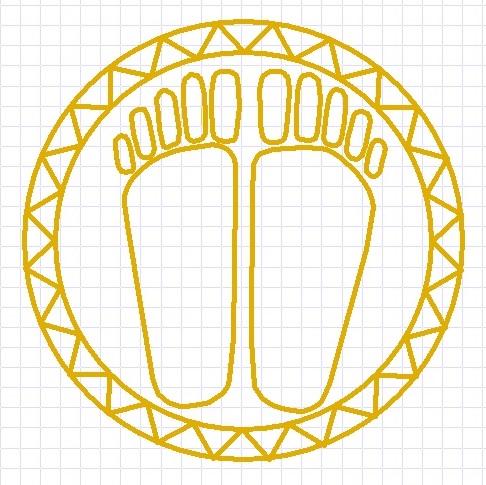Unctousness & Dukka (Suffering) in Buddhism
Tuesday 10 Nov 2015
 Unctuous is a word I learnt on an Ayurveda retreat in India. It came up in a context of describing the so called “Kapha nature” in Ayurveda. We all have it in some measure. There are three qualities or Dhosa’s in Ayurveda language. They are Vartha, Pitha and Kapha. This Tri-Dhosa system describes us all and to be healthy, they need to be in good balance. (I will describe what I learnt from Ayurveda principles in another blog.) The Ayurveda Doctor in charge at our retreat kept repeating that Kapha is unctuous and Pitha less so.
Unctuous is a word I learnt on an Ayurveda retreat in India. It came up in a context of describing the so called “Kapha nature” in Ayurveda. We all have it in some measure. There are three qualities or Dhosa’s in Ayurveda language. They are Vartha, Pitha and Kapha. This Tri-Dhosa system describes us all and to be healthy, they need to be in good balance. (I will describe what I learnt from Ayurveda principles in another blog.) The Ayurveda Doctor in charge at our retreat kept repeating that Kapha is unctuous and Pitha less so.
The dictionary definition of unctuous is “overly pious” with added meaning that goes to “slippery” or “not being truthful”, white lies is the best spin. Putting it all together with the meaning I took from the Doctor, I get to something like trying to make square pegs go into round holes by “slippery means “. Perhaps even with a good motivation, intention and expectation, however, the act is essentially flawed. Even when compassion or love is involved it still never gets to truth because the ignorance present in our actions turns it into a conceit. This is because we do not know and we think or at least believe we do. The Tri- Dosha is also present in animals and other creatures, but it is there in a more instinctual way, without the manipulation that self-awareness brings. In Ayurveda it is the Tri-Dhosa System that creates and sustains life or “Ayus” as we know it. The unctuousness that attends with higher self-aware consciousness can work to blind us but it can also be an opportunity see deeper into the nature of reality when the time is right.
I realised on this retreat that I am a very unctuous person. That is I am prone to try hard, to believe in and make life work. My imbalances are Kapha then Pitha, which can be normal for older people, especially where there may be level of piety. I have a tendency to keep believing in life and so try to make everything right when the reality is that there will always be a “fly in the ointment”. Life cannot be made perfect and peaceful. As much as we try to civilise ourselves, the reality is that humanity will always have an equal potential to back slide into fear, ignorance and war through grasping to hold on to and control what we believe. Having seen this reality from my Buddhist perspective, “Enlightenment” then becomes the only real option to truth beyond this worldly reality.
The Buddha’s teachings started with his famous Four Noble Truths. The first Noble Truth was the first utterance he made as a teaching after becoming “Enlightened”. He said that “Life is Dukkha”. “Everything is Dukkha”. Dukkha is a Pali word and is difficult to translate into English. It means “suffering or not satisfactory”. It means “not peaceful” or “dis-ease”. It would not be too extreme to even express this last term without the hyphen. I believe it is difficult to fully appreciate what the Buddha meant when he expressed this truth because as humanity has evolved and developed so has our Kapha Dhosa, along with our unctuousness. My insight on this retreat in India, was that this unctuousness is what makes it difficult to see exactly what the Buddha meant by Dukkha. He was being very rebellious. Indeed he was pointing to the fact that the world can never be perfect, that this life and world must be let go of to realise the Enlightenment he was pointing to. Unctuousness was probably what the Buddha was looking at when he first despaired at teaching his path. But then he thought I will teach for those with “just a little dust in their eyes”.
When we reflect on our history we see that at any given time, even in the time of the Buddha, humanity has never been able to deliver peace and harmony. Dukkha is always there. Even over the past few decades we have seen some of our greatest civilisations fall apart and descend into war and chaos. Our ignorance coupled with our unctuousness lures us into thinking we can work with the conditions of life to manipulate or force it into peace, even when history shows us that war cannot create peace. Another of the Buddha’s teaching explains “Three Characteristics of all Things”. This teaching shows us that we cannot make a permanent peace. The first of these characteristics is the Dukkha as I have been explaining. Second is Anicca which is a Pali word for Impermanence. Impermanence is in the nature of all things. This needs deep contemplation to bring it home, but essentially nothing can be made permanent. The third characteristic is Anatta in Pali, which means “no self”. The Buddha teaches that there is no permanence in anything at all including us. Not even a soul. Our unctuousness, which comes about from our ignorance, stops us from seeing deeply into what the Buddha meant by Dukkha. The Buddha said each of us with our own insight wisdom and volition needs to “get out of the house of self”. He said the “house of self is on fire, get out as soon as you can”.






